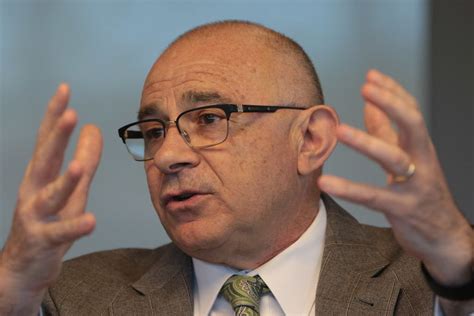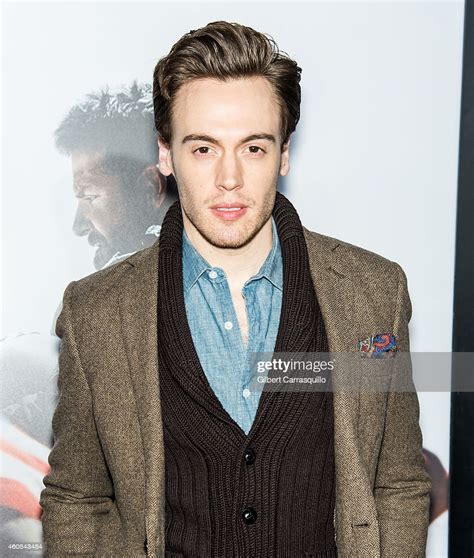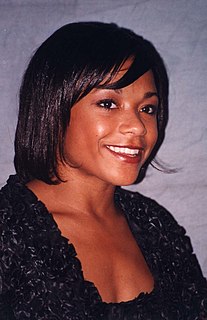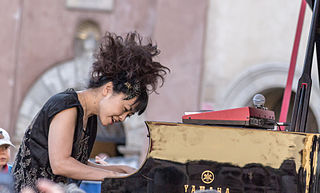A Quote by Sal Albanese
During my eleven years as a New York City public school teacher, I saw firsthand the impact that poverty has on the classroom. In low-income neighborhoods like Sunset Park, where I taught, students as young as five years old enter school affected by the stresses often created by poverty: domestic violence, drug abuse, gang activity.
Quote Topics
Abuse
Activity
Affected
City
Classroom
Created
Domestic
Domestic Violence
Drug
Drug Abuse
Eleven
Enter
Firsthand
Five
Five Years
Gang
Impact
Income
Like
Low
Low-Income
Neighborhoods
New
New York
New York City
Often
Old
Park
Poverty
Public
Public School
Saw
School
Students
Sunset
Taught
Teacher
Violence
Years
York
Young
Related Quotes
When I was mayor of New York, my views changed. I began as mayor of New York City thinking that I could reform the New York City school system. After two or three years, four years, I became an advocate of choice, of scholarships, and vouchers, and parental choice, because I thought that was the only way to really change the school system.
Most Americans living below the official poverty line own a car or truck - and government entitlement programs seldom provide cars and trucks. Most people living below the official poverty line also have air conditioning, color television, and a microwave oven - and these too are not usually handed out by government entitlement programs.
Cell phones and other electronic devices are by no means unheard of in low-income neighborhoods, where children would supposedly go hungry if there were no school-lunch programs. In reality, low-income people are overweight more often than other Americans.
When I was in high school, I was doing a fashion show, and my House Father would host fashion shows at the school. He was great at it. He saw me and said, 'That's my daughter.' The rest was history! We went to New York City to rehearse and go to balls, and I was in the ballroom scene until I was 17 years old.
I was born 50 years after slavery, in 1913. I was allowed to read. My mother, who was a teacher, taught me when I was a very young child. The first school I attended was a small building that went from first to sixth grade. There was one teacher for all of the students. There could be anywhere from 50 to 60 students of all different ages.
Often low-income parents give their children every other thing they need for successful participation in school and the world of work except the planning and organizing skills and habit patterns needed to operate in complex settings. Many intelligent and able college students from low-income backgrounds confront these deficits when faced with a heavy assignment load. . . . These patterns are best acquired at an early age and need to be quite well developed by late elementary school or twelve or thirteen years of age.
At the age of 6, a teacher full of ambitions, who taught in the small public school of Biran, convinced my family that I should travel to Santiago de Cuba to accompany my older sister who would enter a highly prestigious convent school. Including me was a skill of that very teacher from the little school in Biran.
DonorsChoose was conceived at a Bronx public high school where I taught social studies for five years. In the teachers' lunch room, my colleagues and I often lamented a problem that drained learning from students and creativity from teachers: a lack of funding for essential materials and for the activities that bring subject matter to life.
Education is huge for me. I went to public school until I turned thirteen, and was lucky enough to afford college once I became successful as an actress. I cannot believe that quality education costs as much as it does in this country. Ghetto Film School is a remarkable public high school in New York City where students get to learn to express themselves through filmmaking, and have hands-on access to equipment.
The solution for rising up kids in the income distributionlies is in creating better childhood environments for kids growing up, especially in low income families. And so what means such things like schools, the quality of neighborhoods. If you think about what's gone on in Baltimore, it's a place of tremendous concentrated poverty. People aren't really seeing a path forward and I think revitalizing places like that can have a huge impact, even in the face of globalization and changes in technology.


































